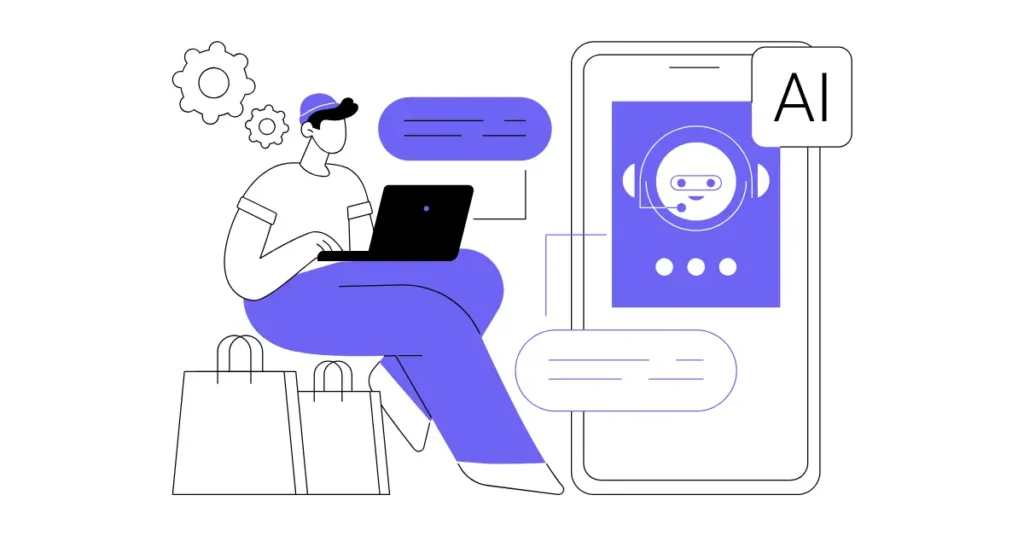
Social Media Management for B2B and B2C: Differences in Tone, Platform, and Strategy
Social media management plays a critical role in the success of businesses in the digital world. While a B2B social media strategy builds long-term relationships with professional audiences, a B2C strategy fosters immediate and emotional connections. In this comprehensive guide, we'll compare B2B and B2C social media management, delving into the differences in platform selection, content strategies, and tone.
Key Differences in B2B and B2C Social Media Management
Both types of businesses differ in their target audience, content strategies, and platform preferences. B2B social media strategies operate in professional environments where decision-making processes are lengthy. Multiple decision-makers are involved, and they base their purchasing decisions on logical justifications. In contrast, B2C social media strategies focus on the emotional and impulsive decisions of individual consumers.
In social media management, B2B businesses focus on gaining trust and expertise. However, B2C businesses focus on building brand awareness and customer loyalty. The difference between B2B and B2C influences all social media activities, from content creation to platform selection. Furthermore, B2B businesses prioritize sharing industry knowledge with a more professional tone, while B2C businesses focus on building emotional connections and creating entertaining content. A B2B social media strategy aims for long-term ROI, while a B2C strategy aims for short-term sales conversions. Furthermore, B2B strategies generally focus on longer sales cycles, while B2C strategies create short-term interactions that generate rapid conversions. In short, while both strategies are specific to their target audience, they differ in the tactics and content types used.
Characteristics of B2B Social Media Management
The target audience here consists of C-level executives, purchasing managers, and industry experts. These decision-makers are on social media platforms seeking information, industry updates, and networking. B2B social media management develops its strategies with this in mind.
B2B social media serves as a tool for building trust, demonstrating expertise, and establishing long-term relationships. This strategy shares content on industry trends, analysis, and expert opinions. This approach aims to provide valuable insights at every stage of the potential customer's buying journey.
Features of B2C Social Media Management
A business's target audience consists of individual consumers who vary in demographics, interests, and purchasing behavior. They seek entertainment, inspiration, social connection, and a shopping experience on social media. B2C social media management develops content and engagement strategies to meet these expectations.
B2C social media plays a role in building brand awareness, establishing emotional connections, and influencing purchasing decisions. Because it's built on visual content, storytelling, and instant interaction, this approach aims to make the time consumers spend on social media both enjoyable and valuable.
Ideal Social Media Platforms for B2B
LinkedIn: The Heart of B2B Social Media
LinkedIn is an indispensable platform for B2B social media strategy. With over 900 million professional users, it is the largest networking platform in the business world. Furthermore, LinkedIn provides a powerful platform for content sharing and industry-specific conversations, contributing to the deepening of business relationships. B2B social media management facilitates thought leadership content, company updates, industry analysis, and networking activities on LinkedIn. The platform offers excellent opportunities for lead generation and brand awareness. Ultimately, LinkedIn is an indispensable tool for B2B strategies, and effective content strategies can reach a broad professional audience.
To be successful on LinkedIn, you must share valuable content regularly. Industry trends, expert opinions, and company success stories attract high engagement on this platform. LinkedIn Analytics tools allow you to analyze your sharing performance in detail.
Twitter and YouTube: Quick Updates and Education
It's the ideal platform for quick updates and industry discussions. B2B businesses use Twitter to follow industry trends, share expert opinions, and engage at live events. Features like hashtag strategies and Twitter Spaces increase brand visibility.
YouTube, on the other hand, is preferred for long-form educational content, product demos, and webinars. In B2B social media management, YouTube utilizes video content to explain complex products and services. Niche platforms like SlideShare and GitHub are also gaining importance in certain industries.

Ideal Social Media Platforms for B2C
Instagram: The Center for Visual Storytelling
It's the ideal platform for quick updates and industry discussions. B2B businesses use Twitter to follow industry trends, share expert opinions, and engage at live events. Features like hashtag strategies and Twitter Spaces increase brand visibility.
Visual storytelling and lifestyle content are at the heart of B2C social media strategy. With 2 billion active users, it delivers high engagement rates, particularly among younger demographics. B2C social media management includes product placement on Instagram, influencer collaborations, and user content campaigns.
Different content formats like Instagram Stories, Reels, and IGTV allow brands to showcase their creativity. Social commerce integration with the Shopping feature leads to direct sales conversions. Therefore, the Instagram algorithm rewards high-quality visual content and consistent sharing.
YouTube, on the other hand, is preferred for long-form educational content, product demos, and webinars. In B2B social media management, YouTube utilizes video content to explain complex products and services. Niche platforms like SlideShare and GitHub are also gaining importance in certain industries.
Facebook, TikTok, and Pinterest: Diverse Demographics
With its wide demographic range and diverse content formats, it offers a comprehensive platform for B2C businesses. Features like Groups, Events, and Facebook Shops enable community building and e-commerce integration. Furthermore, Facebook Ads' advanced targeting options enable precise audience segmentation and ensure ads reach the right people. With these features, B2C businesses can strengthen customer relationships and increase sales by getting quick responses. Furthermore, with Facebook's analytics tools, businesses can measure the impact of their ads and optimize their campaigns. Therefore, Facebook is a powerful marketing tool for B2C businesses and plays a key role in building brand awareness.
TikTok has become indispensable for viral content and the Gen Z audience. Short-form videos, creative effects, and trending hashtags are the driving force behind this platform. Pinterest offers the opportunity to reach users with high purchasing intent, particularly in the lifestyle, fashion, and decor sectors. Furthermore, Instagram, with its visually focused content, is a key platform for fashion, beauty, and lifestyle brands.
Differences in Tone and Content on Social Media
One of the most important elements that reflects brand identity is tone. The difference between B2B and B2C businesses is most clearly evident in the tone of content. B2B social media strategies are professional, while B2C ones are friendly and entertaining. Furthermore, while content in a B2B strategy is more information-focused and incorporates industry expertise, B2C strategies prioritize more personal and creative content aimed at establishing an emotional connection.
B2B Content Tone: Professionalism and Information Focus
The professional tone of this type of social media content is directly related to the target audience's business standing and expectations. The language used in the social media management process incorporates industry terminology but remains understandable. The content provides valuable information to the reader and reflects their level of expertise.
Educational and value-driven content is the cornerstone of any B2B social media strategy. This content includes:
- Sectoral guides and analysis reports
- How-to videos and tutorials
- Webinar announcements and live events
- Research results and statistical data
- Expert interviews and thought leadership content
B2B social media management aims to help target audiences improve their business processes by sharing this content. Content strategy aims to balance the goals of lead generation and customer education.
B2C Content Tone: Friendly and Fun
The role of sincerity and fun in social media stems from the need to establish an emotional connection with consumers. In social media management, language is approachable, friendly, and accessible, reminiscent of everyday expressions. This approach highlights the brand's human face and fosters a more personal connection with consumers.
Storytelling and building emotional connection are central to B2C social media strategy. Brand stories, customer experiences, behind-the-scenes content, and user-generated content fall into this category. Furthermore, B2C social media management builds trust by creating content that provides value to consumers and touches their lives. By supporting stories with visuals, consumers identify with the brand. In short, building an emotional connection in B2C strategies is key to building a loyal customer base.
B2B Social Media Strategies
Target Audience Determination and Content Strategy
Professional content creation and target audience identification are the cornerstones of B2B social media management. Ideal customer profile (ICP) analysis details demographic and firmographic characteristics. This analysis determines which types of content to share on which platforms. A B2B social media strategy targets decision-making personas and develops personalized messaging for each persona.
B2B content marketing requires long-term thinking. You should produce in-depth content like e-books, whitepapers, case studies, and industry reports. This content addresses potential customers' educational needs and showcases the brand's expertise.
Lead Generation and ROI-Focused Approach
Engaging with e-books, webinars, and long-form content is a crucial part of the B2B lead generation process. Integrating content marketing with social media increases organic reach and attracts qualified leads. B2B social media management repurposes this content in different formats across different platforms.
Marketing Qualified Lead (MQL) and Sales Qualified Lead (SQL) metrics are key indicators of B2B social media success. With CRM integration, you can measure the impact of social media activities on sales results.

B2C Social Media Strategies
Viral Content and Instant Marketing
Fast, engaging, and visually focused content is the driving force behind a B2C social media strategy. During the social media management process, content creation follows popular topics and platform algorithms. Furthermore, content with high viral potential can exponentially increase brand awareness. A B2C social media strategy captures immediate marketing opportunities and enables rapid response.
Following trending hashtags and reacting quickly to current events are key to success in B2C social media. Furthermore, a real-time marketing approach keeps your brand relevant and increases organic reach. In short, the ability to respond quickly and accurately helps brands stay competitive on social media.
User-Generated Content and Influencer Marketing
User-generated content (UGC) and influencer marketing are powerful tools for B2C social media management. UGC campaigns authentically showcase customer experiences and create social proof. Influencer collaborations convey brand messages through people the target audience trusts. Furthermore, UGC content enhances brand credibility, while influencer marketing rapidly expands brand awareness and boosts engagement rates.
These strategies increase organic reach and engagement rates. Working with micro-influencers typically leads to higher engagement rates and more authentic content. Developing hashtag strategies for UGC campaigns encourages user engagement. Furthermore, combining influencer and UGC content increases credibility while reaching a wider and more diverse audience with brand messages.
The difference between B2B and B2C social media strategies can be crucial in determining how to utilize content marketing. Discover why content marketing is so crucial for digital campaigns by reviewing our article "Why is Content Marketing Important in Digital Campaigns?"
Measurement and Reporting in Social Media Management
Effective social media management requires continuous measurement and optimization. The difference between B2B and B2C social media strategies lies in the KPI selection and analysis approaches. Different metrics are prioritized for each model.
B2B Social Media Analysis
Return on investment (ROI) and lead generation are key success criteria for B2B social media management. However, accurately measuring these criteria requires an effective attribution model. The attribution model tracks which social media activities convert into qualified leads. Furthermore, MQL and SQL metrics measure the impact of social media investments on business results. B2B social media strategies often utilize multi-touch attribution models due to long sales cycles. An effective attribution model for B2B businesses increases the efficiency of their marketing strategies, enabling informed investment decisions.
LinkedIn analytics tools and industry reports form the foundation of B2B social media analysis. LinkedIn Analytics provides detailed insights into posting performance, follower demographics, and engagement patterns. Sales Navigator data is used for lead engagement and lead scoring. Furthermore, LinkedIn's content recommendation algorithms help B2B brands achieve greater visibility and optimize their content strategies.
B2C Social Media Analysis
Engagement rates and sales conversion are metrics that provide rapid feedback in B2C social media management. Engagement rate, reach, impressions, and click-through rates provide instantaneous indicators of content performance. Conversion rates are also important metrics that measure the effectiveness of B2C social media strategies. A B2C social media strategy utilizes these metrics to instantly optimize content.
Instagram, Facebook, and TikTok analytics tools offer platform-specific insights. Instagram Insights analyzes story completion rates and hashtag performance. Facebook Analytics tracks audience demographics and cross-platform behavior. TikTok Analytics displays video completion rates and trending hashtag performance.
LinkedIn analytics tools and industry reports form the foundation of B2B social media analysis. LinkedIn Analytics provides detailed insights into posting performance, follower demographics, and engagement patterns. Sales Navigator data is used for lead engagement and lead scoring. Furthermore, LinkedIn's content recommendation algorithms help B2B brands achieve greater visibility and optimize their content strategies.

Future Social Media Management Trends
Artificial Intelligence and Automation
The use of artificial intelligence in social media management is rapidly increasing. Chatbots, automated content creation tools, and predictive analytics are transforming both B2B and B2C social media strategies. Furthermore, AI-powered tools offer significant advantages in content optimization, audience analysis, and performance forecasting.
Social Commerce and Shoppable Content
E-commerce integration across media platforms continues to deepen. Features like Instagram Shopping, Facebook Shops, and TikTok Shopping play a central role in B2C social media strategies. In the B2B space, LinkedIn's lead generation forms and direct messaging features continue to evolve.
Conclusion
Social media management is a complex process that requires different approaches for B2B and B2C businesses. However, both models require a strategic approach to ensure brands reach their target audiences in the most effective way. While a B2B social media strategy focuses on building long-term relationships and demonstrating expertise, a B2C social media strategy aims for rapid engagement and emotional connection. Furthermore, the differences between B2B and B2C impact every process, from platform selection and content tone, from analysis methods to success metrics. Ultimately, while both strategies focus on different goals, success is possible with the right content, platform, and target audience analysis.
Successful social media management requires understanding your target audience, utilizing the right platforms, appropriate tone, and measurable strategies. As social media platforms evolve in the future, the fundamental differences between B2B and B2C will remain, but technological advancements will create new opportunities.
To develop your B2B and B2C social media strategies, achieve your digital marketing goals and get professional support, you can contact us by reviewing our our solutions page.









